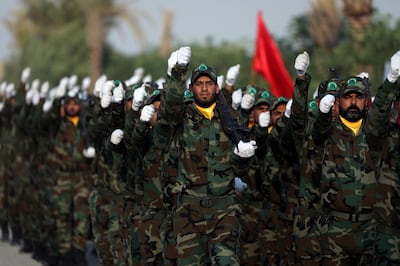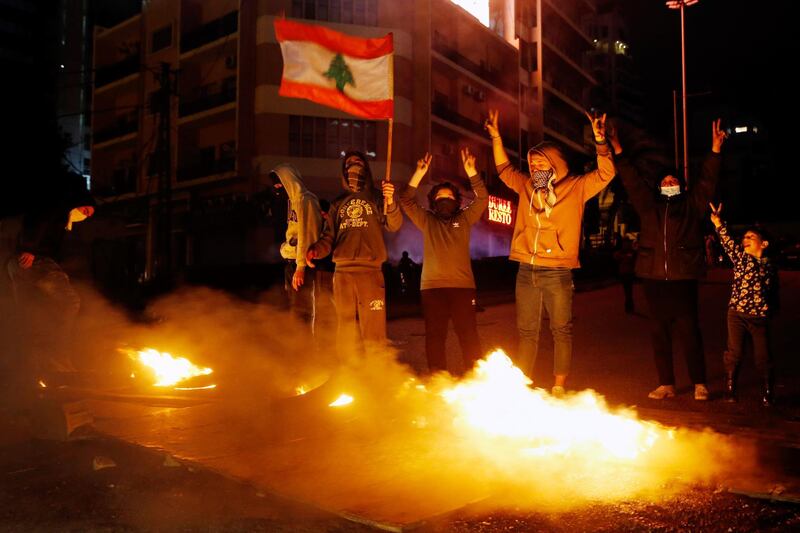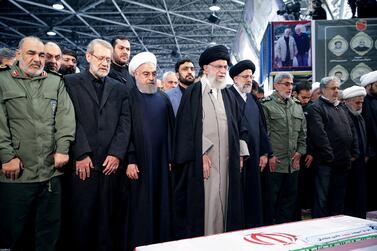The US has stepped up pressure on Iran – together with America's three European partners in the nuclear deal that was signed in 2015 to keep Tehran's weapons partially in check. The Donald Trump administration had threatened to impose 25 per cent tariffs on European automobiles if Britain, France, and Germany refused to activate the dispute resolution mechanism in the nuclear deal. This mechanism allows parties to the deal to determine whether Iran is violating the terms of the agreement, opening the door to the possibility of snapping back the United Nations-led sanctions on Tehran, which had been lifted under the agreement.
Iran’s Foreign Minister Mohammad Javad Zarif has reacted with distress, having lost his bet that the Europeans will help Tehran circumvent US sanctions through a financial mechanism long demanded by the regime to allow it to sell its oil. Addressing the Europeans, whom he accused of caving to US “bullying”, he tweeted: “If you want to sell your integrity, go ahead. But DO NOT assume high moral/legal ground.”
The deterioration of relations between Tehran and the European troika will increase the anxiety felt by the regime and shrink its options amid its domestic and regional crisis. Attempts to blackmail the European Union and provoke the US have failed, with the regime blundering time and again, and further sliding into quagmires in Syria, Iraq, Lebanon and Yemen. At the same time, ordinary Iranians have erupted against the regime. Failed also is its bet on the impeachment of Mr Trump or the premature defeat of his re-election bid.
"Why do you allow the United States to bully you around?" Iranian Foreign Minister Mohammad Javad Zarif asks. pic.twitter.com/CRP2gqW5Pn
— The National (@TheNationalNews) January 16, 2020
For these reasons, Iran’s leaders have decided to relent in the region and postpone their vengeance against America, while they regroup and contain domestic trouble by cracking down on protests with orders to the Islamic Revolutionary Guard Corps, or IRGC, this week by the top echelons to accomplish the task.
Yet the Trump administration will not sit idly by, especially after Iran increased its uranium enrichment levels and decoupled itself from its nuclear commitments. It is therefore preparing additional measures against Tehran, which would include imposing a financial blockade on Iranian banks led by its central bank. Sources in Tehran say that this could trigger another round of retaliation two weeks from now.
Meanwhile, the regime is adopting a policy of “de-escalation for the sake of dominance” in Lebanon and Iraq, while postponing further activities in Yemen and closely watching what happens to its project in Syria. There are indications it wants to cut its losses in the region and manage the different crises in the interim.
For instance, it does not dare heat up the Lebanese and Iraqi fronts by orchestrating crackdowns against protesters in either country. Distinct uprisings are taking place right now yet they have one common characteristic: their rejection of Iranian dominance, which is being exerted via its proxies. The problem for Iran is that the protesters’ demands are in themselves a coup against the systems of government upheld by Iran in these countries. This translates to an existential battle for the regime’s logic.
In Iraq, the Quds Force – which is part of the IRGC – seems eager to restore its prestige in the wake of the killing of its commander, Qassem Suleimani, by a US drone strike in Baghdad earlier this month. Sources suggest that Mr Suleimani's successor, Esmail Qaani, intends to visit Iraq soon to establish continuity and take over the regional missions assigned to the Quds Force in the region. But Iran's assessment of the situation in Iraq is that regrouping will take time. For this reason, relenting is the name of the game for the moment, even as Iran's key policy remains the same: forcing the withdrawal of all foreign troops from the region.
At the same time, the uprising there seems determined to hold its ground and US troops appear to be staying put for now. The situation in Iraq therefore remains fragile, without any indication that there might be light at the end of the tunnel.

In Lebanon, the Iranian regime is refusing to surrender Hezbollah’s control – either through the imminent government or on the ground against protesters. But Iranian and Hezbollah leaders worry about the rapid deterioration of the economic situation, affecting their popular base that could turn against them. They are aware that pretending the uprising is against corruption only and not the entire system of government in Lebanon is delusional. But paradoxically, they know that forming a government comprising independent figures means undermining their dominance over Lebanese politics. So they continue to manipulate the form, nature, and orientation of the yet-to-be-formed government.
Their anxiety is justified because the situation is now clearer: there will be no bailouts from outside countries unless the new government includes independent ministers unlinked to the political class. On the other hand, agreeing to form such a reformist government would mean Hezbollah can no longer monopolise decision-making in Lebanon, and Iran’s most important ally in Lebanon and the region would be weakened.
The Lebanese political class – led by Hezbollah's allies the Free Patriotic Movement, or FPM, and Shia group Amal – has been trying to sculpt a government favourable to it but all attempts have been thwarted by the uprising. They brought in Hassan Diab, a technocrat, to form a government outwardly of reformists but actually comprising advisers and aides to the same politicians. But this trick has backfired. Neither the Europeans have been fooled nor the protesters have been intimidated by the tactics of the corrupt and sectarian ruling class. The slogan of the uprising remains "all of them means all of them", meaning to get rid of the entire ruling elite.
The prime minister that Lebanon needs is someone who has experience in managing major entities, a CEO or the chief of a major institution, not a goodhearted person wanting to appease all sides. Lebanon needs a government that includes an equal number of men and women, not a government infused with women who take their orders from men. Lebanon needs a “dream team” that would be bold enough to undertake radical reforms. Even respectable independents will not be fit for purpose, if they are weak or malleable. The dilemma, however, is that such a government will not be acceptable to the entire political class, led by Hezbollah.
Hezbollah’s ally in government, the FPM, is caught between a rock and a hard place. It is possible that it might come under sanctions if the situation continues to hold or if the uprising is forced to turn violent. At the same time, the FPM is losing support within its own base because of the arrogance of some of its leaders.
The uprising, meanwhile, continues against systematic corruption. It is a multi-generational, multi-confessional uprising of people, who have matured early and no longer care about the stunts of politicians, who still think they can stay in power indefinitely. For this reason, it would be a mistake for the army or the security forces to link their fate to that of the political class. Their duty and interests require them to protect the uprising and join hands with its men and women to shape a brighter future for all Lebanese.
Raghida Dergham is the founder and executive chairwoman of the Beirut Institute






